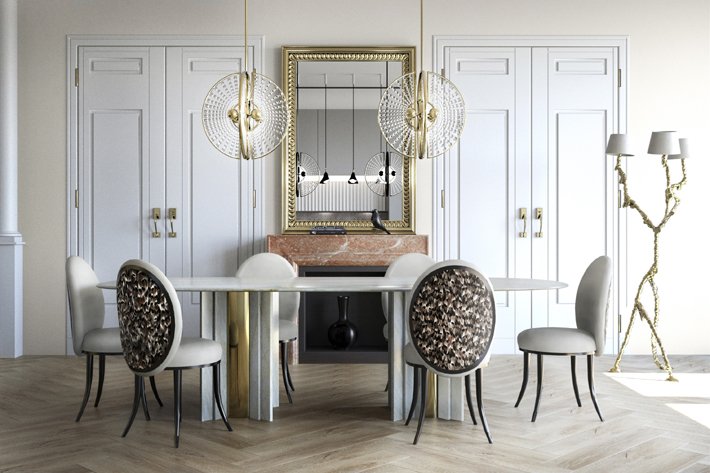Mix and Match: Combining Different Furniture Styles

Mix and Match: Blending Different Furniture Styles for a Unique Look
![]()
Creating an aesthetically pleasing and harmonious interior design can be an exciting endeavor. One approach to achieving a unique and eclectic look is skillfully combining different furniture styles. Integrating various aesthetics allows you to create a space that reflects your personality and showcases your creativity. In this article, we will explore 11 key points on successfully blending different furniture styles to achieve a one-of-a-kind look in your home.
Identify Your Style Preferences
Before diving into the world of mixing and matching furniture styles, it is essential to identify your preferences. Are you drawn to modern, minimalist designs or lean towards a more traditional and ornate look?
Understanding your style will be a foundation for creating a cohesive design scheme that truly resonates with your taste. When you clearly understand your preferences, you can start exploring different furniture styles that align with your vision.
Start with a Cohesive Color Palette
Establish a cohesive color palette to ensure a harmonious blend of furniture styles. Choose a primary color or theme as a unifying element for the different furniture pieces. This creates visual unity and coherence amidst the diversity of styles.
Balance Proportions
Achieving a visually appealing mix of furniture styles involves paying attention to the proportions of the pieces. Aim for a balanced compo, thoughtfully combining larger and smaller items. This interplay of scales adds visual interest and ensures no furniture style dominates the space.
Be Mindful of Functionality
While aesthetics are essential, it is crucial not to compromise functionality when blending different furniture styles. Ensure that the pieces you choose from homemakersfurniture.com.au serve their intended purpose and provide comfort and usability. Strive for a harmonious balance between style and practicality, creating a space that looks appealing and functions effectively.
For example, if you love the retro charm of a vintage desk, make sure it offers the necessary storage and workspace for your needs. Consider how each furniture piece contributes to the room’s overall functionality while maintaining the desired visual aesthetic.
Embrace Contrast
Contrast plays a vital role in successfully blending different furniture styles. Embrace contrasting elements such as textures, materials, shapes, and finishes to create an intriguing and visually dynamic space. Contrast can bring out the unique qualities of each furniture piece, creating a sense of tension and excitement in the design.
Experiment with combining smooth and glossy surfaces with rough and textured materials. The interplay of contrasting elements adds depth and character to the overall aesthetic.
Create Visual Flow
To ensure a cohesive look, it is important to establish a sense of visual flow when mixing furniture styles. Arrange the furniture pieces in a way that guides the eye smoothly through the room. Consider the layout and traffic flow, ensuring furniture placement facilitates easy movement and interaction.
Pay attention to how the furniture arrangement encourages a natural flow and fosters a sense of continuity and connection between different styles.
Layer with Textiles
Textiles play a crucial role in unifying different furniture styles. Incorporate throw pillows, rugs, curtains, and other fabric-based accessories to visually tie the disparate pieces together. Choose fabrics that complement each other and the overall color palette while adding warmth, texture, and visual interest to the space.
Pay Attention to Scale
When blending furniture styles, paying attention to scale is essential to avoid overwhelming or underwhelming the space. Ensure that the furniture pieces have proportional dimensions that create a sense of balance and visual harmony. Mixing larger, statement items with smaller, more delicate pieces can add depth and intrigue to the overall design.
Trust Your Instincts
Above all, trust your instincts and enjoy mixing and matching furniture styles. Allow your taste and intuition to guide your decisions. Designing a space that reflects your personality expresses your creativity, so embrace the opportunity to curate a design that is uniquely yours.
Don’t be afraid to take risks and explore unconventional combinations. Your instincts will help you discover unexpected pairings that create a distinctive and captivating look.
Wrapping Up
Mixing and matching furniture styles is a delightful adventure that allows you to break free from conventional design norms and is truly an exceptional space. Remember, the beauty of mixing furniture styles lies in the freedom to showcase your creativity and unique vision.
By following these key points, you can confidently embark on a design exploration journey, blending different furniture styles to craft a home that truly reflects your personality and taste.
Feature Image by KOKET
More to Love!
7 Benefits of Solid Wood Furniture
Create Light, Airy Vibes & Add Variety to Your Interior Decor with Plexiglass Furniture!
Create a Base with Investment Pieces of Furniture
Share This
Adam Schull is a multifaceted individual who wears many hats, including that of an esteemed author and the Chief Editor at Olmeta Luxury magazine. With a keen eye for detail and a passion for the finer things in life, Adam has established himself as a prominent figure in the world of luxury lifestyle and editorial excellence.























